The Nitrogen Opportunity
It’s no secret that the world is in an uphill battle to maintain our global food system as volatility rises and weather patterns become more extreme. The higher yields delivered by synthetic nitrogen fertilizer over the past century support about half the world’s population, but the synthetic nitrogen fertilizer industry is also responsible for more emissions than either aviation or maritime shipping, making it a tension the world must resolve.
The great news is that the technology to resolve it exists. Already, right now. We can replace chemistry with biological solutions that are more sustainable for the planet, and more affordable and reliable for growers. We’re at a tipping point, and we have an imperative to bring forward the most efficient, sustainable solutions—environmentally and financially.
Solutions from the Soil
Our Scientific Advisory Board
Nitrogen is essential to plant growth. Yet, despite early advances in on-farm mechanization, plant breeding and early commercial fertilizers, modern agriculture was unable to meet rising demand until the invention and adoption of the Haber-Bosch process. By fixing atmospheric nitrogen to ammonia at scale, Haber-Bosch contributed to a 50% increase in global agricultural productivity — but at a cost.

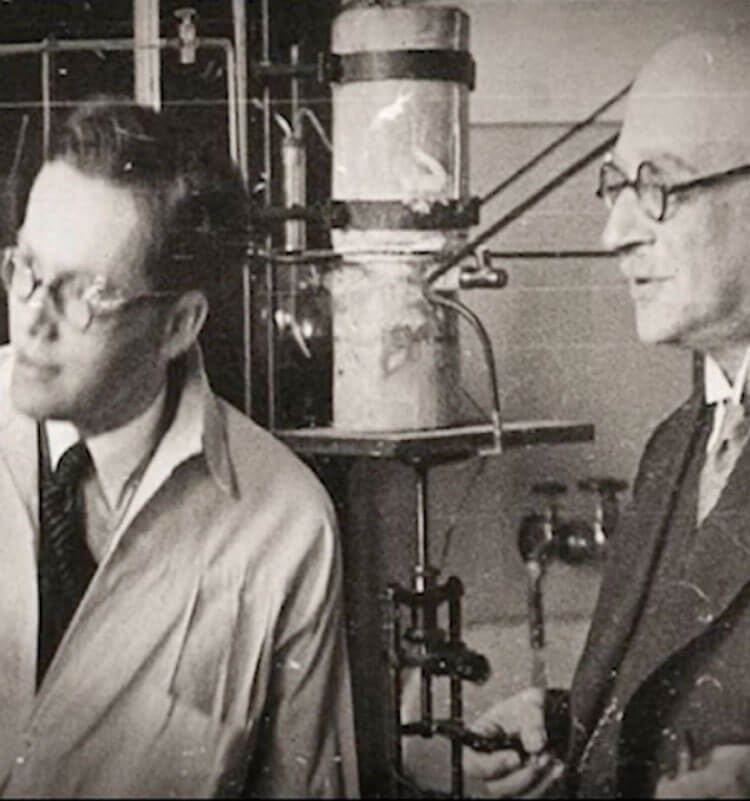
Farmers need a way to grow that’s more reliable and sustainable.

While synthetic fertilizer has been key to global food supply, it’s also dependent entirely on fossil fuels.
Global consumption of nitrogen fertilizer has increased 800% from the 1960s to exceed 200 million tons — and much more will be needed to feed a global population of 9 billion by 2050. Yet, synthetic fertilizer is one of agriculture’s leading contributors to global greenhouse gas emissions and a significant driver of poor water quality, biodiversity loss and air pollution. It is also unpredictable due to leaching and volatilization.
In a volatile world, synthetic fertilizer is no longer a reliable food security solution.
Why Replace Synthetic Fertilizer?
Farmers spend over a third of their operating budget on synthetic fertilizer. Despite the use of soil testing, precision technology, stabilizers, and smarter management strategies, half of synthetic fertilizer applied to farm fields ends up as pollution or is wasted by denitrification.
The costs of nitrogen loss are tremendous to farmers and to the quality of our air, water and soil. Excess nitrogen runs off into waterways, leading to aquatic dead zones, harmful algae blooms and polluted drinking water. It’s released as nitrous oxide – a greenhouse gas with 273x the impact of carbon dioxide. In the soil, excess nitrogen causes acidification, diminishes biodiversity, and accelerates a cycle of chemical dependency.
Pivot Bio vs. the Synthetic Nitrogen Fertilizer System
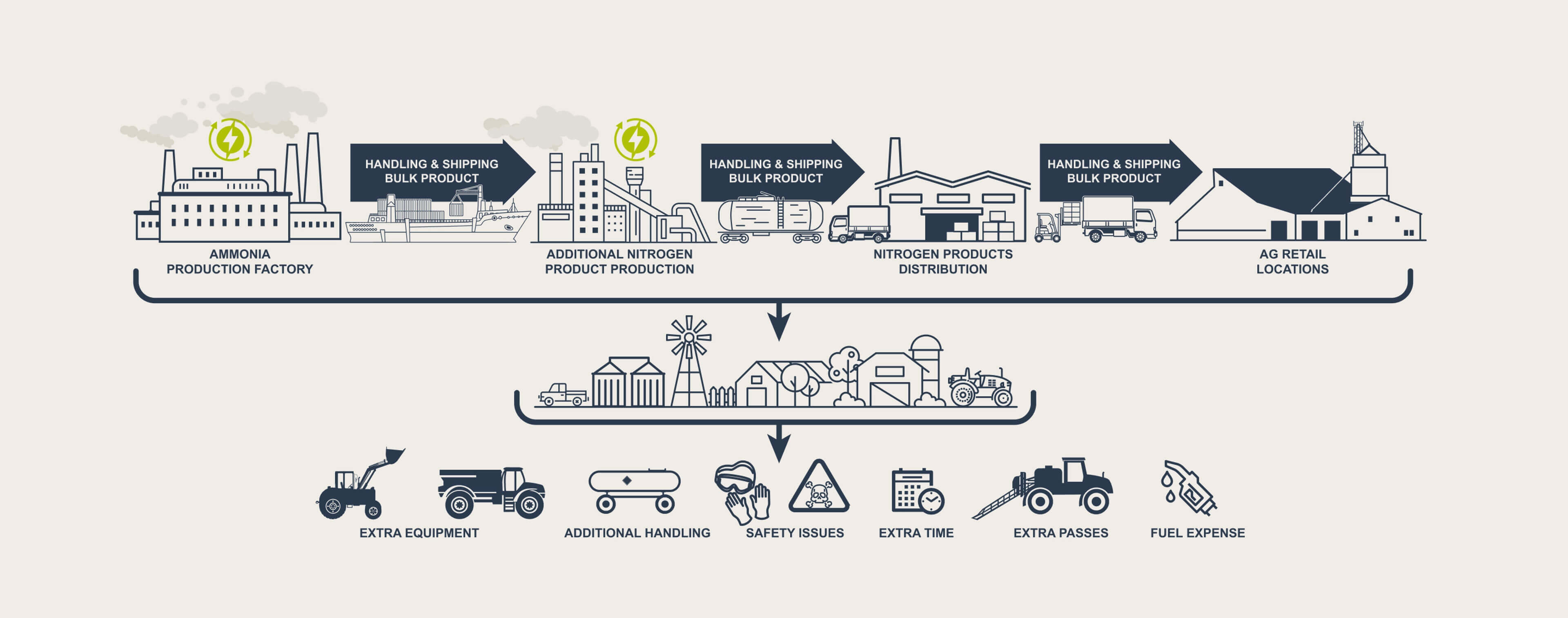

Farmers need nitrogen that is reliable, predictable, safe and better for the environment, without compromising on yield.
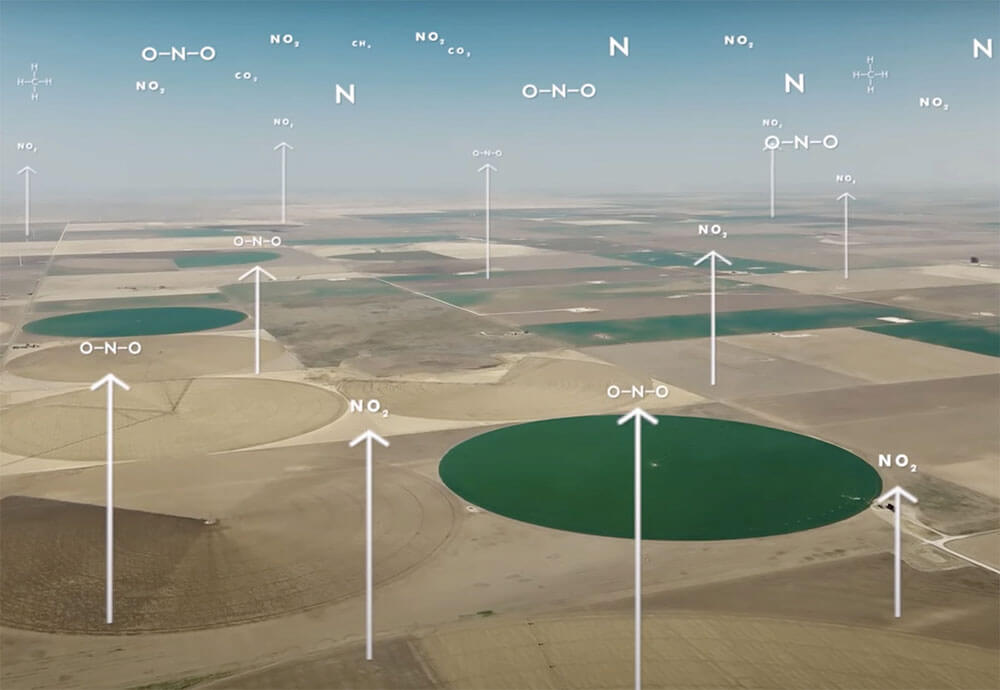
The Cost to Our Environment
Synthetic fertilizer is highly unpredictable, with half of applied fertilizer lost to the environment from leaching or volatilization. Excess reactive nitrogen is released to the air during fertilizer application, only to be absorbed by water and run off into waterways, and eventually evaporate into the atmosphere as a greenhouse gas.
>30% of freshwater impacted by eutrophication
Less than 1% of all water on earth is freshwater. Agriculture uses 70% of that freshwater and nitrate runoff from synthetic fertilizer contributes to the 30-40% of lakes, rivers and aquifers that have nutrient pollution that contributes to “dead zones”
~75% of N₂O emissions come from agriculture
Agriculture is the largest source of global N2O emissions, driven primarily by agricultural soil management and the use of synthetic fertilizers and livestock manure.
273x more powerful at warming the planet than CO₂
N₂O is 273x more powerful at warming the planet than CO2 and accounts for 7% of total U.S. GHG emissions.
2.5% of global GHG emissions
N₂O, mostly from industry and agriculture, contributes 2.5% to total global GHG emissions.
Harness The Power Of Nature
While precision technologies and more sustainable conservation management practices can address some of the limitations of synthetic fertilizer, they don’t address its fundamental flaws. We are transforming agriculture by eliminating the need for synthetic fertilizer. Our technology meets the demand for nitrogen consistency and dependability by enabling microbes to convert atmospheric nitrogen and deliver it to crops.
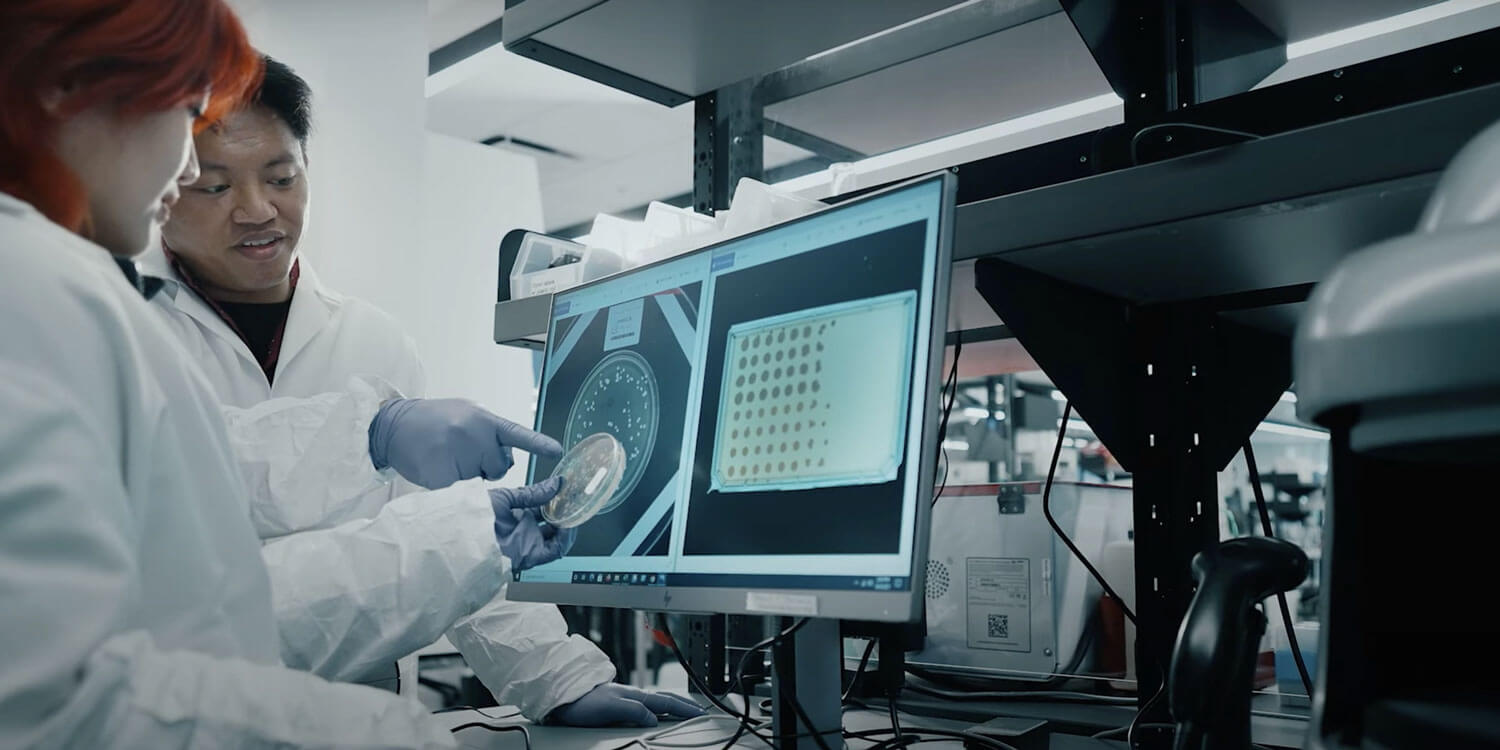
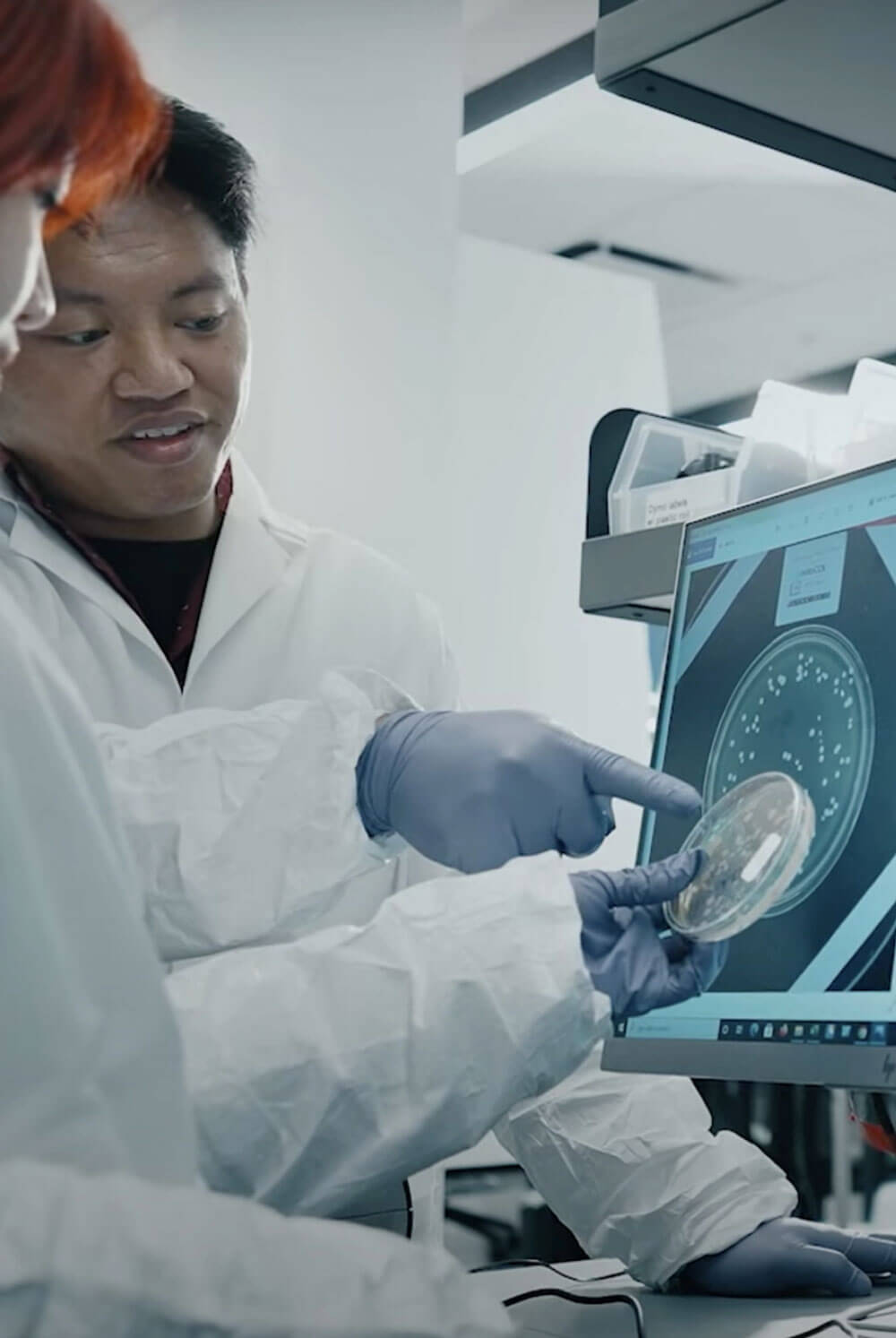
Pivot Bio’s patented crop nutrition technologies enable microbes to reliably produce nitrogen for many of the world’s most important crops.
By replicating a microbe’s nitrogen fixing abilities, Pivot Bio is able to supply nitrogen directly to plants at the root, in any weather or soil, throughout the growing season. We are delivering the nitrogen necessary to grow essential crops without the negative impacts of synthetic fertilizer.
Thanks to our breakthroughs, we are supporting healthier, more productive and resilient crops and preventing nitrogen loss to the environment. We are signaling a sea change in nitrogen management and evaluation, measuring not just yield improvement but also profitability, predictability and sustainability.
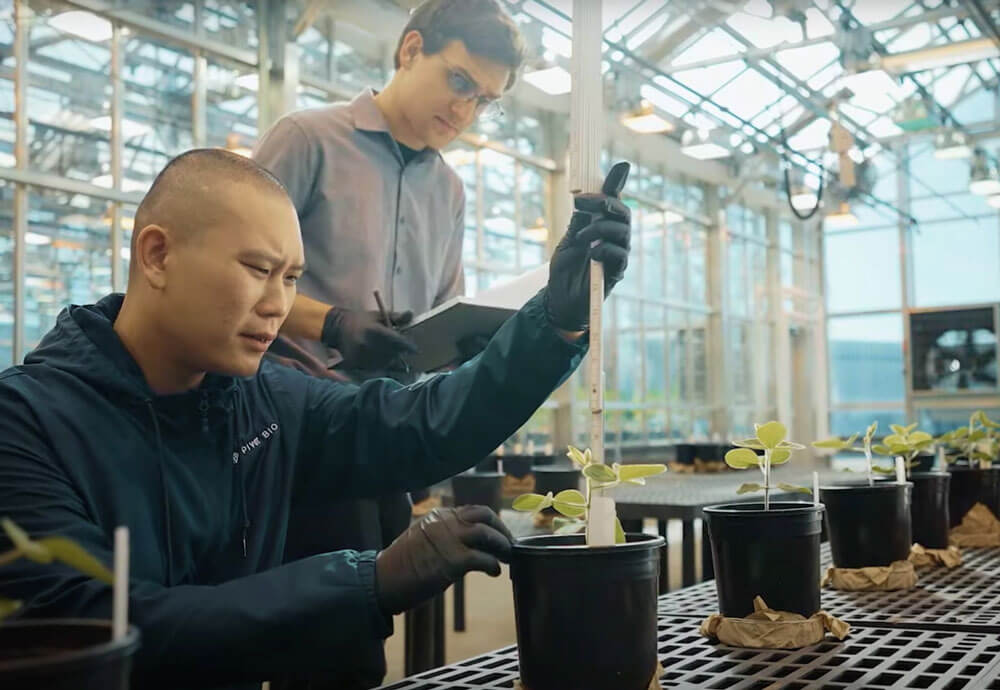
Our Technology
Learn how Pivot Bio is using science and technology to enable naturally occurring, nitrogen-fixing microbes to replace synthetic fertilizer.
Learn MoreN-OVATOR™ Program
Explore how Pivot Bio is rewarding farmers and corporations for replacing synthetic fertilizer with microbial nitrogen.
Learn More